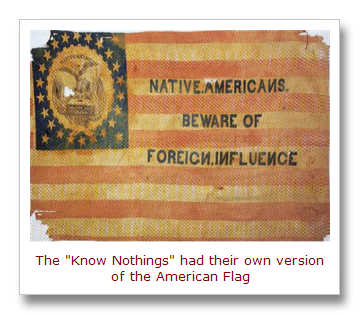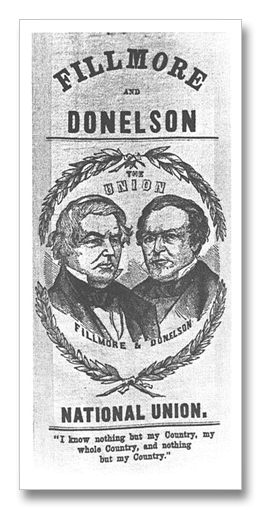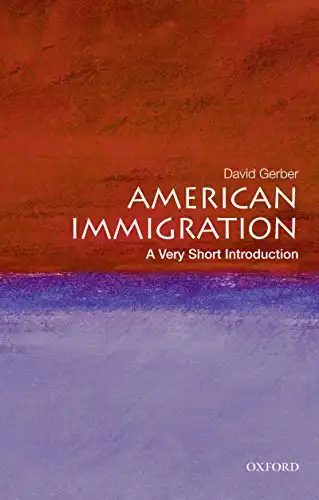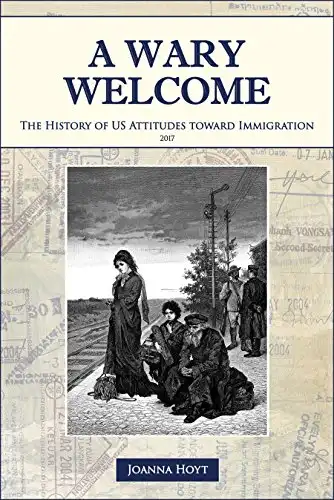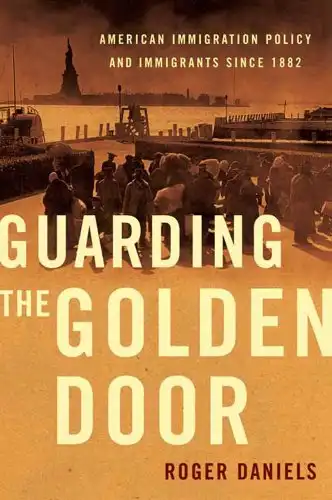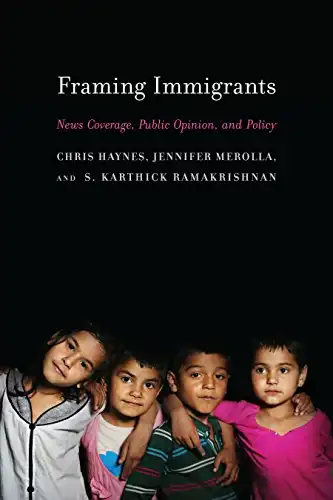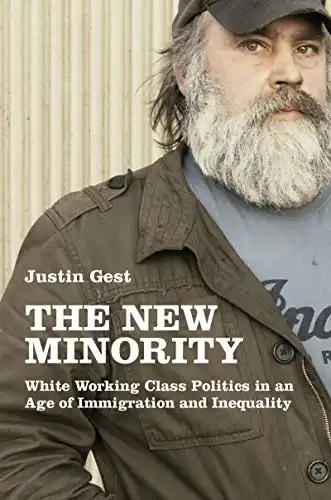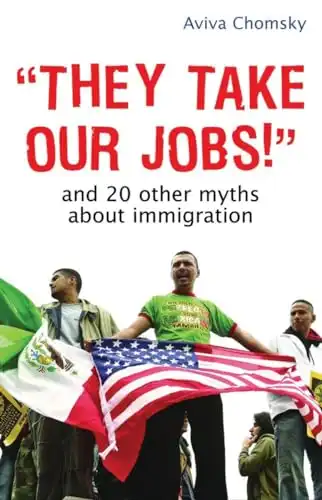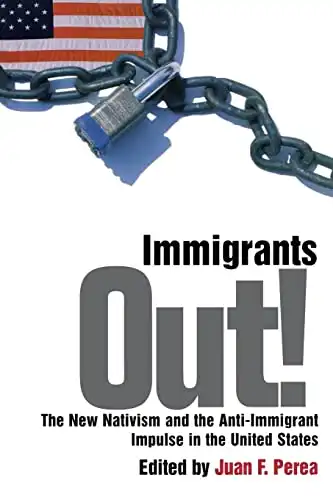Many people associate the catchphrase “I know nothing!” with the television character Sergeant Schultz (actor John Banner).
It was one of his frequent lines in the 1960s comedy series Hogan’s Heroes, along with “I see nothing.”
However, more than a century before Hogan’s Heroes first aired in 1965, the phrase “I know nothing” was popularized by a now largely-forgotten political group that has clear similarities to some current ones.
It was typically called the “Know Nothing Party” and its members were dubbed “Know Nothings” for short.
The Know Nothings started out as an unofficial anti-immigrant movement.
Its followers were primarily white Protestants who thought of themselves as the real, true-blue “native Americans.”
They felt that the growing influx of immigrants from Europe and elsewhere undermined the American way of life, took away the jobs of “real Americans” and insidiously influenced local elections.
The Know Nothings especially hated German immigrants, Jews and Irish Catholics. But they generally feared and disliked almost every other ethnic and racial minority.
The “Know Nothing” name arose as a result of the standard answer members of the movement were told to give to any reporters (or other disreputable types) who asked about the group’s secretive meetings and activities.
They were instructed to respond by saying “I know nothing.” As a result, they came to be commonly referred to as the “Know Nothings.”
In 1843, leaders of the movement in New York formed an official political party. They named it the American Republican Party.
Within a few years, local chapters sprang up in other states. They eventually coalesced into a national group called The Native American Party.
In 1855, the group was renamed The American Party, though it was still often unofficially called The Know Nothing Party.
On February 18, 1856, the American Party held its first national convention to nominate a presidential candidate.
Former U.S. President Millard Fillmore was chosen as the party’s presidential nominee and Andrew Donelson of Tennessee was named his running mate.
Their campaign slogan, which reflected the party’s Know Nothing heritage, was: “I know nothing but my Country, my whole Country, and nothing but my Country.”
Unsurprisingly, the American Party’s political platform wasn’t geared toward creating a “big tent.”
Planks included requiring political office holders to be “native-born” Americans, limiting the annual number of new immigrants allowed to come to the United States (especially Catholics), requiring public school teachers to be Protestants, and requiring daily Bible readings in public schools.
The American Party also had a plank proposing restrictions on the sale of liquor. At the grassroots level, I suspect that one wasn’t particularly popular with most white males (who were the only legal voters at the time) regardless of how they felt about “foreigners.”
In the 1856 presidential election, Democrat James Buchanan won with 45% of the vote. Republican candidate John C. Fremont got 33%.
The Know Nothings’ American Party candidate Millard Fillmore got about 22% of the vote nationally. At the state level, he lost in every state except Maryland.
Historically, 22% isn’t a bad percentage for a third party in the United States.
Nonetheless, Fillmore’s defeat took the wind out of the Know Nothing movement and the American Party quickly faded away.
They did, however, leave behind a memorable catchphrase that some observers see as a fitting description of the views of anti-immigrant movements, past and present.
* * * * * * * * * *
Comments? Corrections? Email me or Post them on the Famous Quotations Facebook page.
Related reading…


